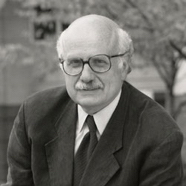10 Days That Rocked America
 It began on July 13 with the horrifying assassination attempt of former President Donald Trump at a rally in Pennsylvania.
It began on July 13 with the horrifying assassination attempt of former President Donald Trump at a rally in Pennsylvania.
Five days later, on July 18, Trump accepted the Republican party’s presidential nomination with a rambling 92-minute acceptance speech. It was the third time the party had nominated Trump to run for President.
Then, on July 21, President Joe Biden, with the nomination wrapped up but under heavy pressure, made a stunning announcement that he was withdrawing from the 2024 campaign. He endorsed Vice President Kamala Harris as the candidate to replace him as the Democratic nominee.
It took just 24 hours or so for Harris to wrap up the delegates needed for her nomination.
And it took just three days for Harris to raise an extraordinary $126 million – with an additional $150 million given to Super PACs now supporting Harris. That’s in addition to the $240 million that Biden aides reported was already on hand in campaign funds.
While the Trump campaign filed a complaint at the FEC this week claiming Harris could not legally use the Biden-Harris reelection committee’s money, that complaint is going nowhere.
The funds were raised for the Biden-Harris campaign, a shared committee, so Biden and Harris had a single contribution limit for the money they could raise from donors. There is no basis for denying Harris these campaign funds.
Biden’s exit, and the warp speed of Harris wrapping up the nomination and beginning her campaign, has dramatically changed the 2024 campaign landscape.
It was 10 days that rocked America.
Trump is now the old man in the race – the oldest presidential nominee ever. And he now faces Democrats who have been reinvigorated virtually overnight.
What started out many months ago as a long campaign slog between Trump and Biden, is now a 100-day sprint between Harris and Trump. For those who have argued that we need shorter campaigns, we now have one.
On Wednesday night, President Biden addressed the nation to explain his decision to leave the campaign. He made clear that his major concern going forward is the need to protect our democracy from the threat of autocracy.
As Biden said, “The great thing about America is here kings and dictators do not rule. The people do.”
He put the responsibility squarely on Americans. He quoted Benjamin Franklin, who was asked when leaving the Constitutional Convention in 1787: “Well, Doctor, what have we got, a republic or a monarchy?” Franklin famously responded, “A republic, if you can keep it.”
Mentioned in passing by Biden was an idea that may become one of the most important pronouncements in his speech: “I’m going to call for Supreme Court reform because this is critical to our democracy – Supreme Court reform.”
Biden has opened the door to an essential, but long and hard, battle ahead to repair the Supreme Court.
The Roberts Court has not only gone rogue, but it has also rapidly squandered its public credibility.
The Court has ignored longstanding cardinal principles, paying lip service to past precedents and not limiting its ruling to just the cases pending before it.
Today’s Supreme Court is a transactional institution in which the Roberts Court decides the results it wants based on a radical ideology and then works backward to fill in the blanks in order to “justify” its decisions.
The Court majority didn’t like campaign finance and voting rights laws, so they gutted them despite decades of precedent and jurisprudence supporting the regulation of money in politics and the protection of voting rights.
They didn’t like the protections for women seeking to make their own choices, so they deep-sixed the protections despite decades of precedent and jurisprudence.
They didn’t like government regulation, so they stripped away the powers of agencies to protect the health, safety, and environment of Americans.
And on and on it goes.
On top of all this, they have allowed the crassest unethical behavior by Justice Clarence Thomas to define their ethical standards. They have let lowest-common denominator ethics represent the Court to the public; they have done nothing to establish effective and binding ethics rules.
President Franklin Roosevelt tried to reform the Supreme Court in the 1930s by packing it with additional Justices.
He lost that battle in Congress. But too many forget that Roosevelt ultimately won when the ultra-conservative Court changed its approach and began to let stand Roosevelt’s New Deal programs.
As President Biden said in his speech on Wednesday night, our nation today is at an inflection point.
Ten historic days in July just rocked America.
They may also have brought us to a turning point in the battle to protect our democracy and defeat autocracy.
Fred’s Weekly Note appears on Thursdays in Wertheimer’s Political Report, a Democracy 21 newsletter. Read this week’s and other recent newsletters here. And, subscribe for free here and receive your copy each week via email.